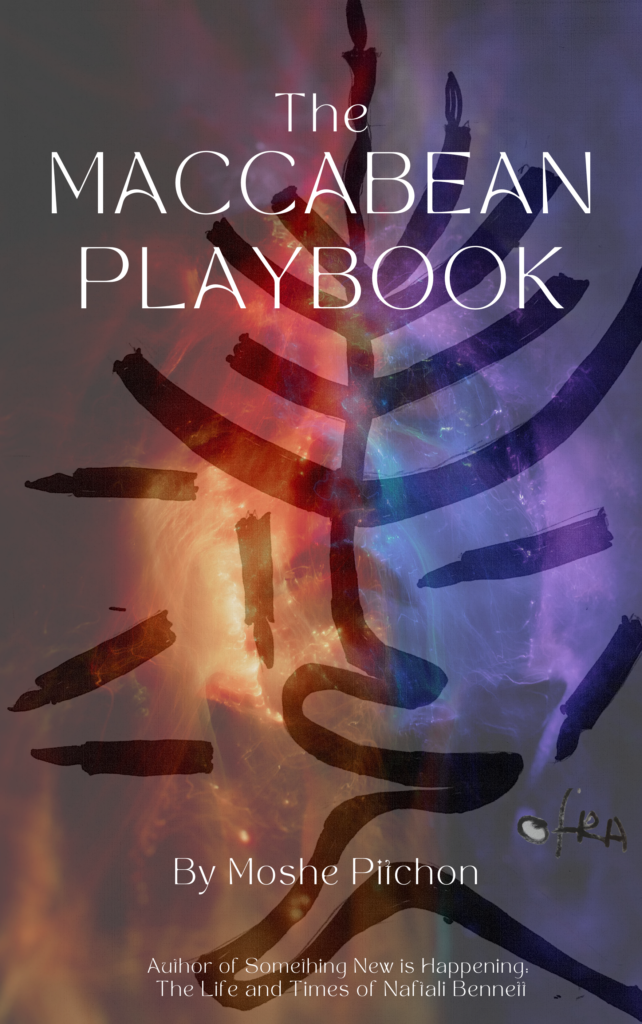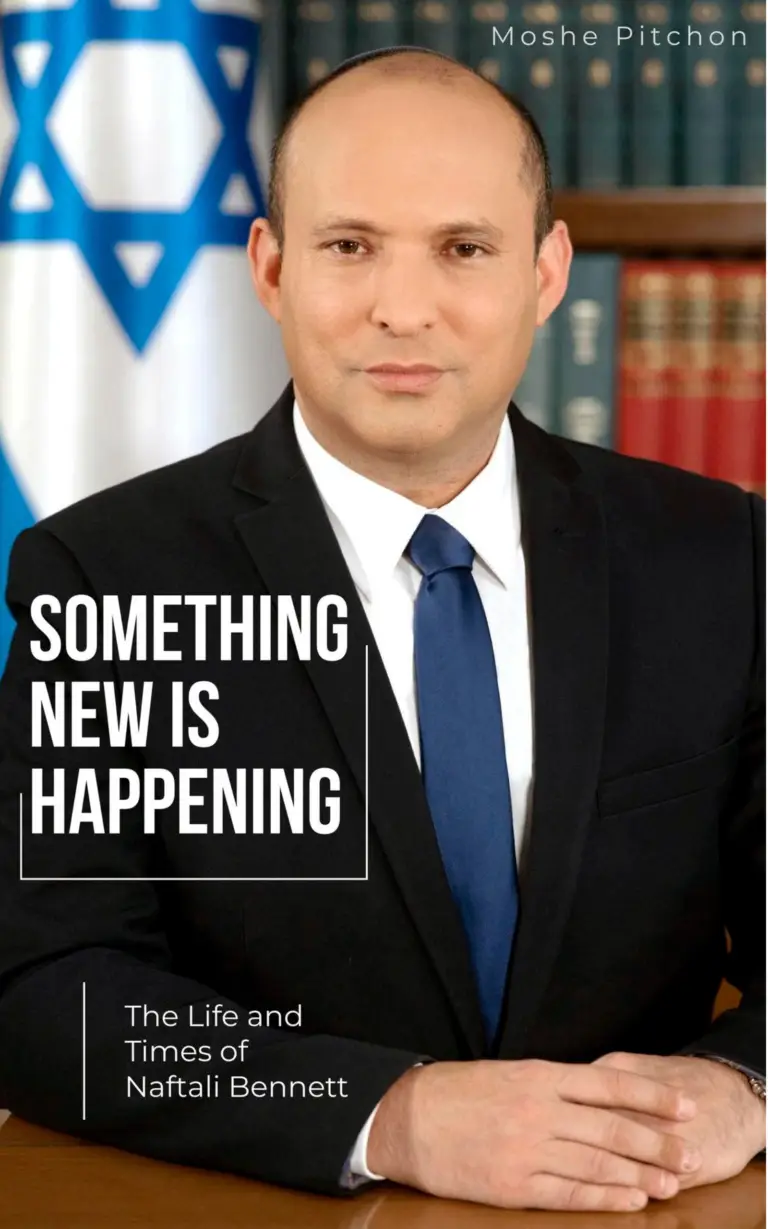The Maccabean Playbook
Then and Now
A book by Moshe Pitchon author of “Something New is Happening: The Life and Times of Naftali Bennett
In his new book, Miami’s author Moshe Pitchon invites readers to compare the in-construction Third Jewish Commonwealth [1] with the failed Second Commonwealth [2] two thousand years earlier.
The writer, whose articles are published in different languages in media around the world, draws an intriguing parallel between the “Maccabean” kingdom and the modern State of Israel. The third reiteration of a Jewish state is poised to mark its 77th anniversary this year amid significant divisions, controversies, street protests, and a strong intervention of foreign powers. The Hasmonean kingdom lasted 80 [3] years before succumbing to internal divisions and civil war.
[1] Begin 1948
[2] Between 530 BCE and 70 CE
[3] 143—63 BCE

Pitchon, a rabbi who has served in congregations in California and South America during turbulent times and who has taught Jewish philosophy and biblical literature, is of the opinion that, when everything is said and done, every book contains only a single idea. In the case of The Maccabean Playbook: Then and Now, the underlying idea is a question: “Why this time would it be different?”
The rabbi, whose graduation thesis had been on the philosophy of history of the biblical prophets, paraphrases Voltaire, who said that history does not repeat itself; human beings do.” A thought that invariably leads to Santayana’s dictum that “those who cannot remember the past are condemned to repeat it.”
Like many others, Pitchon feels that Jewish philosophy has entered the twenty-first century armed with antiquated conceptual weapons and sees Jewish history as having been addressed apologetically instead of looking at it as one of the greatest storehouses of human experiences available to the world. Developed in response to anti-Semitism and the necessity to validate Jewish identity, this defensive attitude led to a focus on victimhood instead of a blueprint for a brighter future.
One of the benefits of a long-living culture such as the Jewish one is that it can look at many facets of the present and say, “Been there, done that.” The Maccabean Playbook: Then and Now is intended to deliver the cautionary message that experience and wisdom bring.
Moshe Pitchon, who studied philosophy with some of the most impactful Jewish philosophers in the 60s and 70s, refers to Jewish philosophy as “Mahshevet Yisrael” or “Jewish Thinking.” This thinking provides one of the most venerable Jewish educational tools used to explain complex issues: the “mashal” (parable or similitude). The “mashal” typically begins asking, “What is this similar to?”
In his work, “The Maccabean Playbook: Then and Now,” the history of the Hasmonean dynasty serves as the “mashal” that draws parallels to the path taken by the third iteration of an autonomous, independent Jewish state.
“One cannot get there unless he knows where he is going,” the rabbi says. “Jews know where they want to get; they just don’t agree on how to get there.”
The Jews of the Hasmonaean Kingdom, united in their desire to liberate themselves from the constraints of oppressive foreign dominance, were unable to achieve the unanimity required to implement Judaism’s fundamental principles. Thus, the Second Temple’s demise was precipitated by the infighting between religious sects and the conflicts between economic interests and authority, which culminated in civil war.
A chapter overviewing the Third Commonwealth’s developments over more than half a century shows unsettling parallels to the Maccabean Period.
As the title suggests, “The Maccabean Playbook: Then and Now” is more than just another tired retelling of a story that has been rehearsed innumerable times. It is a political warning relevant to what is happening today in the same part of the world.

Rabbi Moshe Pitchon’s prior publication, “Something New is Happening: The Life and Times of Naftali Bennett” (Ingram, Amazon, Kindle, and available in English and Spanish paperback editions), examines the ephemeral unity government that preceded Benjamin Netanyahu’s current administration, offering an alternative perspective on circumventing the regressive forces affecting the contemporary Jewish commonwealth.

